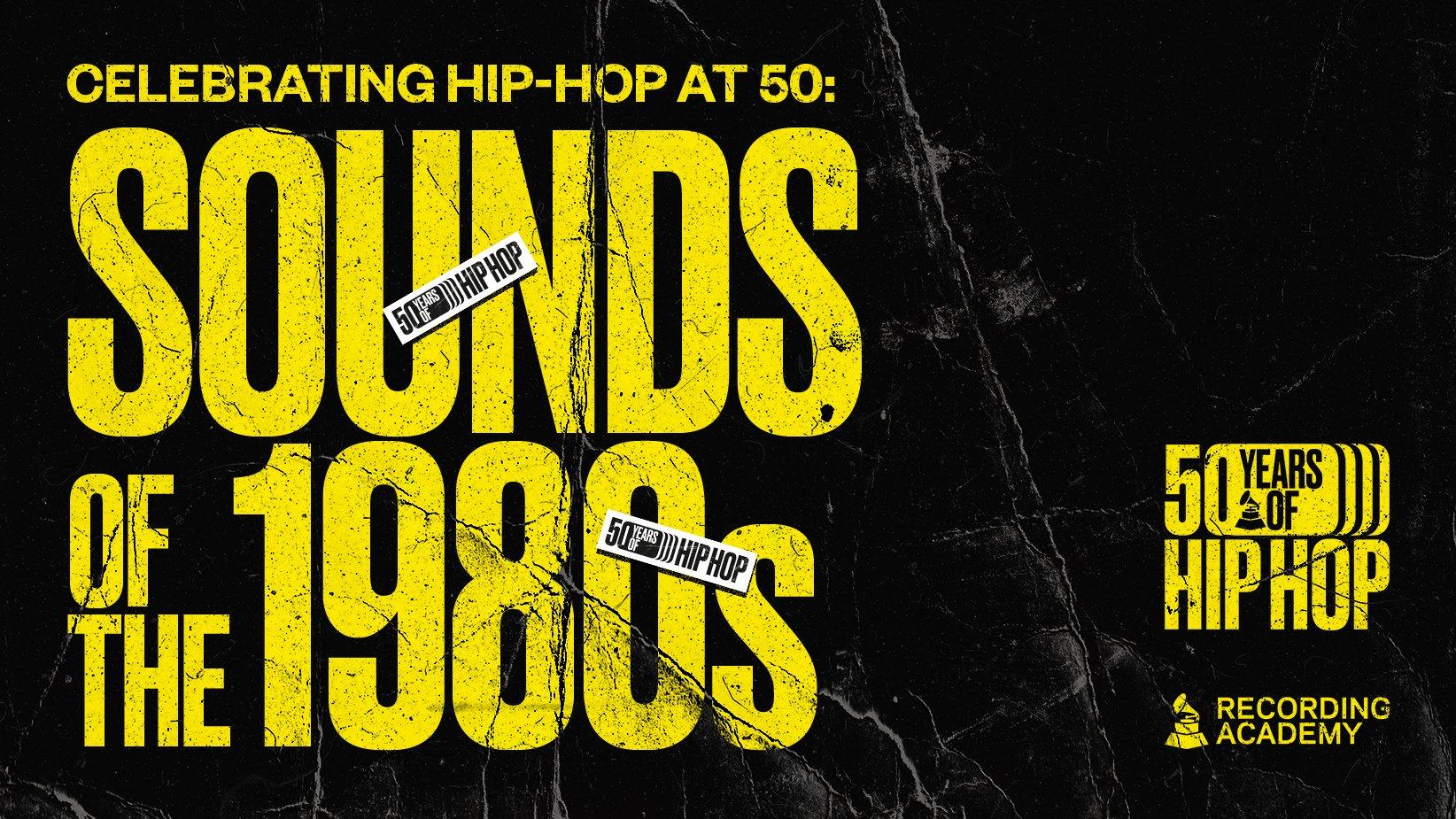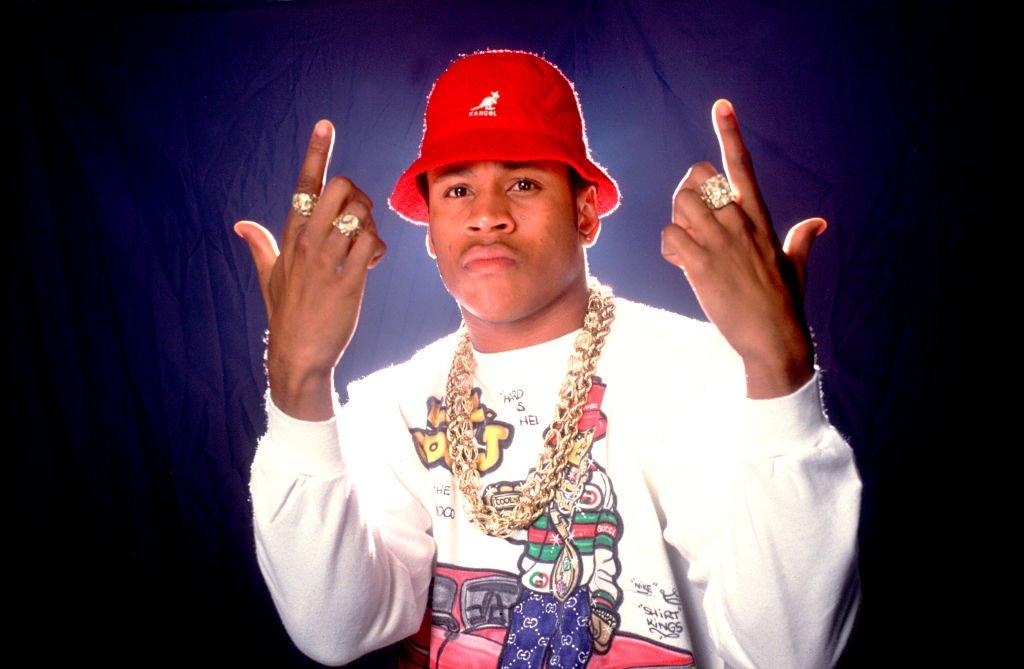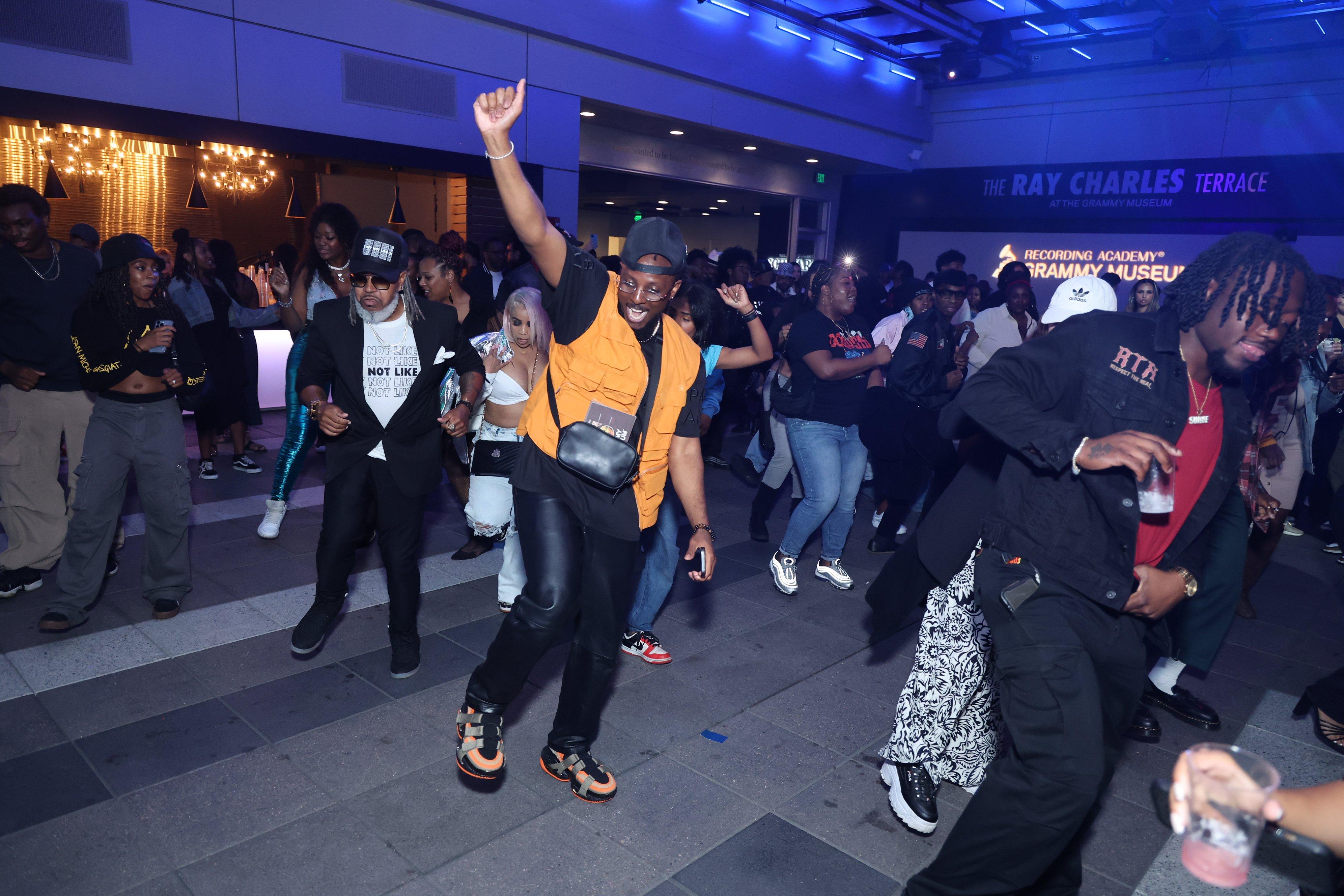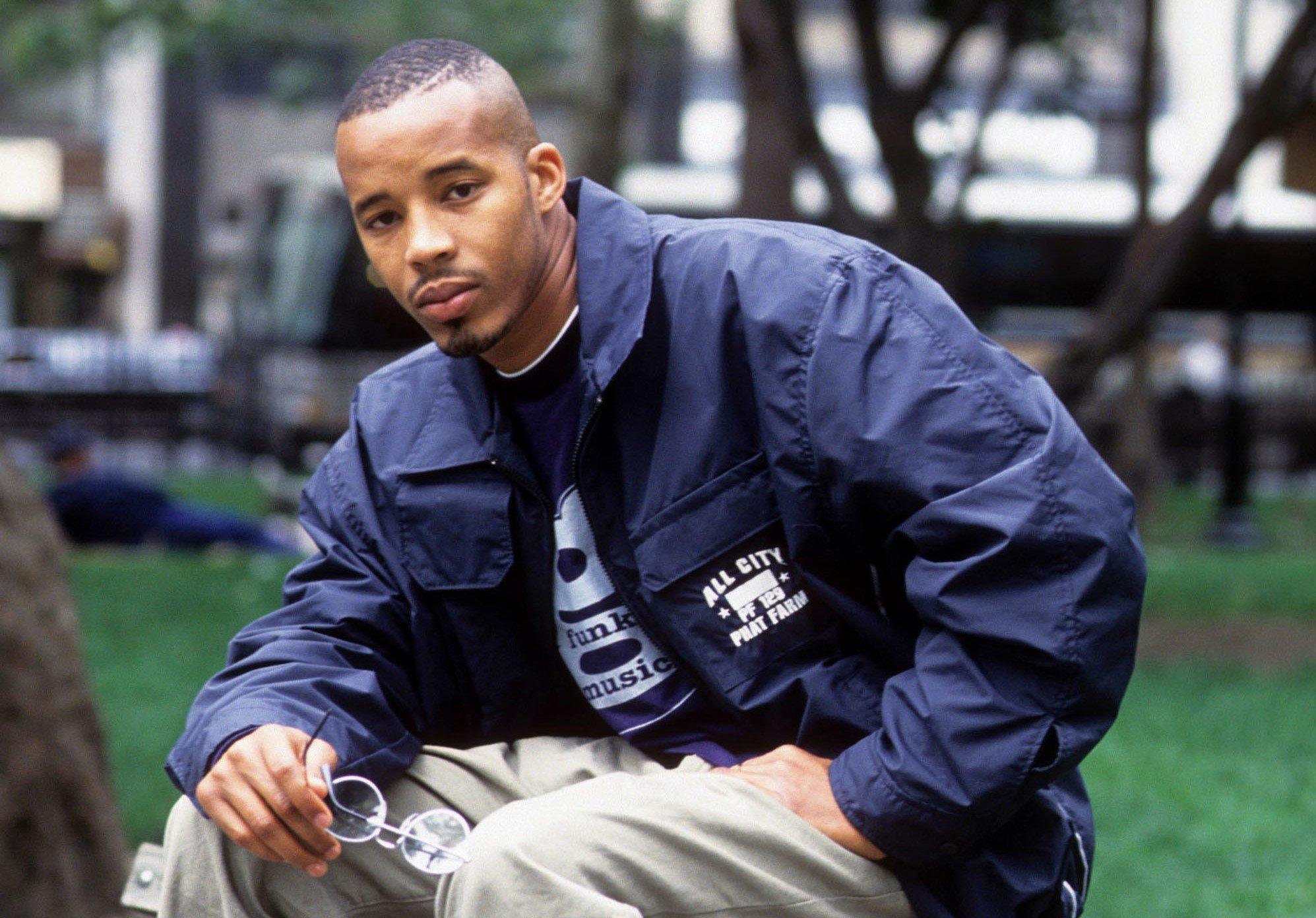Most days of the week, the GRAMMY Museum closes at 6 p.m. But on Thursday, June 6, its doors were open well into the night. As some people filtered through them, others clustered around two rollerskate-clad dancers who synchronized to Aaliyah’s "Try Again" on the sidewalk outside the museum at L.A. Live.
This was Richard "Swoop" Whitebear, the professional who choreographed the mononymous singer’s "Try Again" music video, and Alicia Reason, a skate coach and performing artist operating at the intersection of professional dance and roller skating. Their fluid movements drew a crowd outside the GRAMMY Museum’s inaugural Hip-Hop Block Party.
The after-hours soiree, which ran to 11:30 p.m., is one of the larger events that the five-story archive of GRAMMY Award history and winners has ever hosted. Although the Hip-Hop Block Party honored Black Music Month, observed each June, its concept can be traced back to October 2023, when the museum launched "Hip-Hop America: The Mixtape Exhibit" in celebration of the genre’s 50th anniversary.
"The idea for [the party] came from the energy of the exhibit, which celebrates five decades of hip-hop. I was lucky to be a part of curating the exhibit and hosting its opening night, and that experience fueled my passion for continuing to share the story of hip-hop and its journey across cultures," says Schyler O’Neal, the Museum’s Manager of Education & Community Engagement.
A grant from L.A.’s Department of Cultural Affairs enabled O’Neal and colleagues to coordinate the one-night-only affair, billed as an opportunity to "experience the pulse of hip-hop culture like never before." Across nine interdisciplinary art demos, activations, and pop-ups encompassing mediums ranging from photography to live music and dance, the GRAMMY Museum made good on this promise while providing a platform to compelling California-grown creatives.
"Our goal was to shine a spotlight on local talent across the hip-hop spectrum: DJs, MCs, dancers, fashionistas, and photographers. We brought together an awesome lineup to represent the culture," O’Neal tells GRAMMY.com.
Many spirited, community-building moments colored the evening. Read on for a snapshot of some of its most memorable.
Uraelb Pays Homage To Hip-Hop’s Past, Celebrates Its Present & Embodies Its Future
"I’m setting the tone at 8 pm," Uraelb proclaimed in an Instagram post ahead of the Hip-Hop Block Party. That’s precisely what the L.A. native did when he took the stage at the Clive Davis Theater for the evening’s first vocal performance. Flanked by a drummer, bassist, pianist and two supporting vocalists, UrealB opened with a performance of his original song, "Brace Face."
He created a culture of artist participation by encouraging the crowd to smile and later, to sing along to his buttery-smooth rendition of OutKast’s "So Fresh, So Clean." From there, UraelB’s "homage to hip-hop" crossed coasts and generations, culminating in a pumped-up cover of Kendrick Lamar’s "King Kunta."
"If I leave you with anything, I want to leave you with a deep appreciation for hip-hop," he said before closing with another one of his own productions, "Groovy."
Uraelb first performed at the GRAMMY Museum as part of its educational program INDUSTRY SESSIONS. "[Uraelb] made such an impression during that class that we said, ‘we’ve gotta have him come perform at one of our events,’" O’Neal said just before the activation started.
Over the years, INDUSTRY SESSIONS — open to creatives 18 years and older — and the GRAMMY Museum’s other music education programs, have attracted a host of talent, including Giveon and Billie Eilish.
Larry "Ruin" Combs Krumps to MJ’s "They Don’t Care About Us"
To celebrate hip-hop’s history and culture is to appreciate dance’s inextricability from the music — and vice versa. On the Ray Charles Terrace, professional krumper Larry "Ruin" Combs nodded to South Central L.A., where krumping was born, in an impassioned performance to Michael Jackson’s "They Don’t Care About Us."
A powerful medium of self-expression, krumping is a street dance that evolved from clowning, another style of dance with roots in African and Caribbean culture. Krumping is characterized by sharp, quick, and vigorous movements, like chest pops, stomps, and arm swings, used to convey emotion. Krumpers have historically turned to the art form to release negative or charged emotions and to navigate difficult experiences and circumstances.
Hence the title of the dance special that Combs is crafting, "The ‘e’ in ‘Krump’ is silent."
"A lot of what Krump presents is very emotional; you see it, you don’t hear it," a nearly breathless Combs told the event co-host Leslie "Big Lez" Segar. "That’s what the format of the show is going to be like — various types of music that tug at your emotions, from good to bad."
While additional details about the forthcoming special are limited, those interested can follow Combs — who has notably performed on "America’s Got Talent" and the season finale of "So You Think You Can Dance."
Cross Colours & Black Design Collective Dress For Success
The GRAMMY Museum's attention to curating an event that celebrated the whole of hip-hop culture was especially apparent in the block party’s inclusion of a fashion show.
Cross Colours — a clothing brand launched in 1989 by Carl Jones, who studied fashion at the Otis Parson School of Design and Trade Technical College in L.A. — dressed local models from the Black Design Collective, a group of accomplished fashion industry professionals of color. The collective's goals include amplifying the influence of and creating opportunities for a global community of Black apparel, accessory and costume designers.
Their partnership paved the way to a striking fashion show, during which more than five models circled the museum’s third floor, donning a variety of garments ranging from T-shirts with brightly-hued graphic designs to overalls.
NANA Shows Off His Lyrical Muscle — And A Different Strain Of Hip-Hop
Crenshaw resident NANA contrasted the polished, funk-soul of Uraelb’s activation with a squeaky-clean spitting session. And while the storyteller’s quick tongue and lyrical muscle translated to a well-practiced performance that would have made anyone in attendance think he rehearsed for days pre-show, NANA had only 24 hours’ notice.
As host O’Neal told it during a brief Q&A at the event, his request for NANA to take the stage at the block party ("I need your energy there!" he recalled telling NANA) came while the rapper was in the middle of a studio session. About a day later, NANA was holding a microphone in the Clive Davis Theater.
NANA, who credited Nas, Jay-Z, Tupac, Kendrick Lamar, and Snoop Dogg among those on his "long list" of inspirations, is notably featured in the "Rap City Experience" section of the GRAMMY Museum’s "Hip-Hop America: The Mixtape Exhibit," to which he contributed freestyles.
Five Decades Of Hip-Hop Are On Display
What’s better than a birthday cake? Try a 5,000-square-foot exhibit that traces hip-hop from its humble beginnings in the Bronx and New York City to the GRAMMY stage. On Oct. 7, 2023, the GRAMMY Museum opened "Hip-Hop America: The Mixtape Exhibit," in honor of hip-hop’s 50th anniversary. Offering a focused, expansive (and tactile) look at the genre’s history and profound influence, the exhibit features a "sonic playground" complete with five interactive stations for DJing, rapping, and sampling.
A retrospective educational journey, "Hip-Hop America" canvasses hip-hop scenes, sounds, and fashion across generations. Take, for example, the Notorious B.I.G.’s iconic red leather pea jacket, displayed in the same showcase as Migos’ embroidered blazers. The must-see exhibit exploring hip-hop’s long, rich, and still evolving history runs through Sept. 4.
Learn more: Inside The GRAMMY Museum’s New Exhibit, "Hip-Hop America": From Dapper Dan To Tupac’s Notes
Segar and Swoop, who worked with O’Neal to curate the evening’s dance performances, assembled what can only be described as a mic drop of a finale to the block party’s activations: Hip Hop Universal. The ensemble of five professional dancers and choreographers included Swoop, Robert "Rautu" Harris, Leon "No Realer" Spann, Marlyn Ortiz, and Ronnie "Futuristic Astaire" Willis.
Some of their individual choreography and dance credits include an array of megastars, from Madonna, Taylor Swift, and Usher, to Britney Spears, Dr. Dre, and the Backstreet Boys. Over the course of their collaborative performance, which alternated between group dances and solos, Hip-Hop Universal made minutes feel like seconds — a testament to their rapturous synergy and individual expertise.
Unity On The Dancefloor
At the heart of hip-hop — a genre in which artists pride themselves on representing their cities, perhaps more so than in any other genre of music — is community. That sense of community was apparent even through the schedule of programming. Activations occurred one at a time, in succession. This structure created a sense of togetherness; attendees collectively enjoyed a given activation and made their way to the next one together.
The spirit of community imbued both the block party’s schedule and the content of its activations, but it was perhaps most visible on The Ray Charles Terrace. There, near the end of the evening, as the crowd awaited the final activation (and even afterwards), nearly all in attendance could be found dancing in the crisp, open air to beats spun by DJ R-Tistic.
"This is our first time doing this, and I think we gotta keep doing this," O’Neal remarked on the mic. The crowd’s response — a resounding cacophony of affirmative cheers and applause — was answer enough.
"Everyone, from the talent to the staff to the hundreds of guests, [were] getting down together with the electric slide. That's what it was all about: bringing folks together for a good time," he concluded.
Inside The GRAMMY Museum’s New Exhibit, "Hip-Hop America": From Dapper Dan To Tupac’s Notes






















